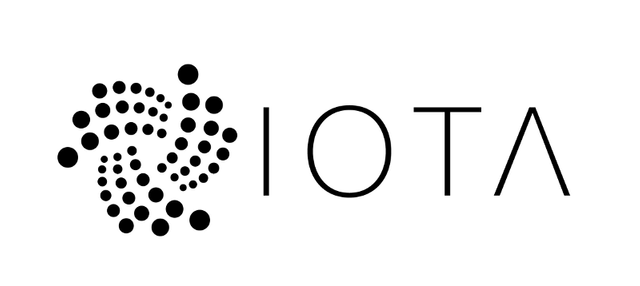Huobi Wallet now supports Eos and Tron
Eos focuses on being a decentralized operating system for deployment of decentralized applications, whereas Tron decentralizes the web in regard to content creation and management. Such additions should excite Huobi wallet users, and pave the way for more upcoming additions.
Huobi is a digital asset exchange management service provider based in Singapore with a number of office locations worldwide, including the Us, Canada and Australia. In recent times, Huobi has made various expansion plans aimed at improving its global presence and to realize inclusive finance globally. Chief among these is Huobi's lightweight multichain wallet.

The Huobi Wallet is a convenient, user friendly secure alternative for users to store their digital assets. Huobi wallet gives users full control of their digital assets via their private keys which grants exclusive access to their digital assets anywhere, anytime. In the span of one year, the number of cryptocurrencies in existence has considerably burgeoned, engendering the belief that blockchain assets will usher in a new era of inclusive world economy.
To keep up with these developments, the Huobi wallet is adding cryptocurrencies at an accelerated rate. In two recent announcements, Huobi stated that that Huobi multi chain wallet had added support to Eos and Tron (TRX)
In addition to TRON and EOS, Huobi Wallet supports Bitcoin (BTC), EOS (EOS), Bitcoin Cash (BCH), Ethereum (ETH), Ethereum Classic (ETC), Litecoin (LTC), Tether (USDT) and all ERC20 tokens. In October, Huobi wallet became the first wallet to expand support to cover seven stablecoins including, Paxos Standard Token (PAX), TrueUSD (TUSD), USD Coin (USDC), Gemini Dollar (GUSD), Dai (DAI), Stasis EURS (EURS), and Tether (USDT).
HUOBI WALLET ADDS TRON AND EOS
On october 31st, Huobi wallet officially announced the inclusion of EOS among the growing list of cryptocurrencies supported by Huobi wallet. Huobi's VP Livio Weng commented on the significance of adding EOS,'EOS is among the most important delegated Proof-of-Stake (DPoS) currencies so it was a natural choice for us to include it',

Nakamoto's revolutionary consensus mechanism, proof of work, offers the best security and decentralization while compromising on scalability. The EOS project is a blockchain protocol that finds an acceptable level of compromise between decentralization and security to provide high performance architecture, suitable for the development and deployment of DAPPs, smart contracts and as transactional instrument.
EOS.IO is a blockchain protocol powered by the native cryptocurrency EOS. The protocol emulates most of the attributes of a real computer including hardware with the computing resources distributed equally among EOS cryptocurrency holders. The EOS token is utility token which is used to grant users access to services on the platform and to reward ecological contributors. Since its launch, EOS has grown in popularity, and currently sits as number 6 on coinmarketcap.

Tron is at the forefront of building the infrastructure of the decentralized internet in which users maintain control of their data. Tron is especially suitable for the entertainment ecosystem; it empowers content creators to maintain full control over their content.
Considering the number of content publishers, and millions of entertainment fans worldwide, Tron needs a high performance, scalable architecture that will support the development of decentralized applications world wide. Currently TRON has a throughput of 2000 TPS, with an aim of reaching 10000 TPS after full development. This is achievable considering they have adopted Delegated Proof of stake consensus mechanism.
Put simply, TRON implements smart contracts to allow users govern the ownership of data creation and implement censorship on publication, storing and sharing of their data. Users can decide what data to share with who and when. This is achieved through smart contracts.
- TRONIX (TRX) is the native currency of the Tron platform, which can be acquired on exchanges. TRX grants access to services on the Tron platform; it is used to buy and sell content.
To incentivize adoption, Huobi recently organized a bounty program in which users got to share 400K TRX for storing their Tron in the Huobi Wallet.

Twitter announcement for the TRON bounty.
The Huobi wallet is a gateway to efficiency in digital asset storage and management .You can download Huobi Wallet here.
POTENTIAL FUTURE ADDITIONS
"Going forward, the community can expect to see more currencies added at an accelerated rate. We also plan on establishing additional partnerships with a range of decentralized apps (Dapps) developers, giving our users greater access to an expanded range of products and services." Livio Weng, VP Huobi group.

My choices for potential addition to Huobi wallet are Iota and Monero. IOTA is an interesting interpretation of what distributed ledger technology can achieve without relying on the traditional blockchain structure. By adopting a directed acyclic graph based architecture (called tangle) Iota is able to escape the scalability woes of traditional blockchains while retaining the fundamental principles of decentralization and security.
As per information from their website, IOTA becomes more scalable as more participants join the network. This make it suitable to handle the transactional demands of the growing Internet of things with up to 50 billion IOT devices expected to be connected within the next couple of years; the amount of data generated will be enormous. Secondly, this amount of IOT devices presents security threat since most IOT devices do not have sophisticated security measures. Using the IOTA network will provide an additional layer of protection against hackers since taking over the network is prohibitively expensive. IOTA also states that the Tangle is resistant to attacks from quantum computing.
According to industry experts, Big data, Blockchain, the Internet of things and Artificial Intelligence are projected to be the background of the next technological revolution. The IOTA project is an intermarriage between the two most potential technologies; IOT and Blockchain. Why? Because smart objects are being heavily implement in the healthcare, industries and the built environment . IOT devices provide real time data for monitoring and managing systems with the potential to save resources, increase efficiencies and even save lives.

My second choice for addition to the Huobi wallet is Monero. Monero is a privacy coin that uses ring signatures, stealth addresses and ring confidential transactions to obfuscate users transactions, making them impossible to trace. The significance is that users can enjoy complete privacy in their transactions without having to look over their shoulders.
Secondly, being untraceable means currency Units of Monero (XMR) are completely fungible. This is because the absence of a traceable transaction history means Monero cannot be blacklisted or tainted based on past transactions. Monero has proven to be quite popular with cypherpunks and ordinary users alike and currently sits at rank 11 on coinmarketcap with of $960,793,152 USD .
I sure will be excited when Huobi wallet adds support for Monero and Iota, which in my opinion are the among the most interesting and promising blockchain projects.